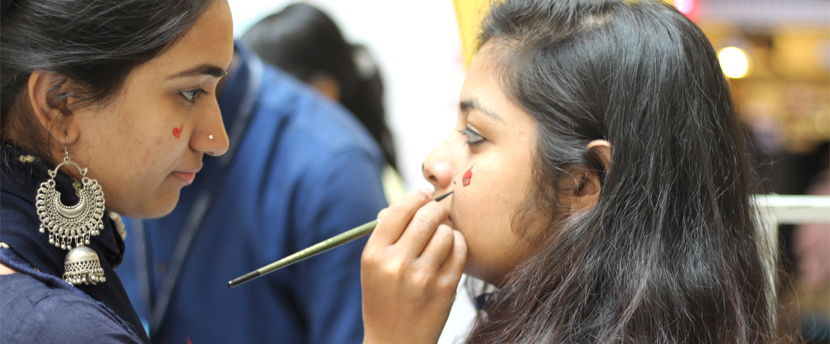Journalism
The Journalism course is aimed at giving the students more than just an overview of the subject; it intends to make the students ready for a career in print journalism and related areas. There will be eight core papers in journalism, covering a broad spectrum of areas of journalism and mass communication. It also will have a parallel set of certificate courses aimed at more specialized areas and skills. The theory papers will aim at making the student aware of the field. The practical and skill-based papers will go a long way in equipping them for the job. It is seen that a broad-based knowledge of the various subjects gives a journalist the perspective in understanding the issues and writing intelligently and in the proper context and right perspective for the lay readers.
Psychology
Psychology is one of the major subjects offered at the undergraduate level as part of the triple major programme. It is a three year full time course aimed at introducing students to the fundamental processes underlying human behavior and familiarize them with a few emerging fields and branches of psychology such as Developmental Psychology, Social Psychology, Abnormal Psychology, Industrial Psychology & Consumer Behaviour, Health Psychology and Positive Psychology. The course also includes two papers of Practical, Statistics and Group Research Projects. The course is part of PSENG (Psychology, Sociology, English) , PSECO (Psychology, Sociology, Economics), CEP (Communicative English, English, Psychology) , JPENG (Journalism , Psychology, English) and PEP (Performing Arts, English, Psychology)
English studies
Literature is an important cultural product of a society or a nation. Hence, the study of literature offers insights into the worldviews of different societies. This course begins with traditional British literature to the present. The course also introduces students to other literatures namely American world, postcolonial and also the Indian literature in translation. The course also introduces students to interdisciplinary studies in culture and gender helping them to gain insights from other disciplines like history, anthropology, sociology etc.
Kindly read through the Overview, Admission Guidelines, Eligibility, Selection Process, Fee Structure, Course Structure and other details given on the right hand side of this page before you could fill the application form.





.png)